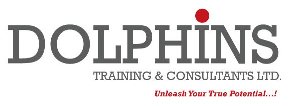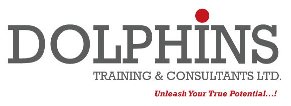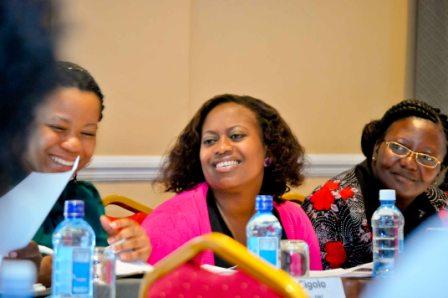
We Push the Human Race Forward... So Do You...
►Discover more Amazing programs from below...
►Find Your Greatness....
►Unleash Your True Potential....!


Executive Meeting Management and Minute Taking Skills Training..
As part of a busy business lifestyle, we spend a large amount of our time interacting with others, in particular with our customer, work colleagues,partners,suppliers and many others. Keeping them happy is as critical as understanding their needs and concerns.
It is well known that a large amount of time of an office worker is spent in meetings, a large portion of which is dealing with colleagues and customers. As a result it is quite critical for anyone to improve their customer management skills and be able to handle more senior customers as their skills are improved and get better results.
Beyond this,we often are required to participate in those meetings both as leader and contributor. However, at other times, we are called upon to assist by taking the minutes of the meeting - recording what was discussed, what was agreed and what is going to be done.
To do so effectively requires a number of skills. We must not only be able to record and summarise the discussion accurately, but also do so succinctly while at the same time applying all the basics of good writing. We must also follow the format, style and tone appropriate both to the meeting and the organisation itself.
In this course participants will be introduced to main aspects of managing meetings. These include subjects such as establishing rapport, handling meetings, negotiating, body language and so on.
There are plenty of educational and entertaining exercises designed to help the delegates put the theory into practice. The idea is that participants should learn the skills during the course by using the new concepts they have learned in controlled exercises and role plays. This is known to increase the retention rate and is an ideal method to learn rapidly with minimum effort.
In this highly practical course participants will learn:
How to Manage Relationships
• How to interact with a customer effectively to get maximum results?
• What to say, how to say it and how to look?
• How to handle potentially aggressive remarks by your customer?
Body Language
• How to great a customer and establish rapport?
• How to use your body language to understand others better?
• How to read clusters of gestures?
• How to read subconscious signals by reading palm orientation and finger layout?
• What are the signals that indicate the other person is defensive?
• What is partial-arm-cross and what does it suggest?
• How to do a power gaze?
• What are various leg crosses and what do they suggest?
Effective Meetings
• How to participate or hold meaningful and efficient meetings?
• What are pre-meeting preparations?
• How to prepare an agenda?
• What should be discussed in a typical office meeting?
• How to prepare, run and finalise a meeting?
• How to avoid wasting time in meetings?
• What are post-meeting activities?
Questioning Methods
• How to use various types of questioning techniques to get better answers?
• How to use listening skills to get more information from your clients?
Negotiation
• How to get a fair deal when negotiating with your clients?
• How to set your limits when negotiating over price? What strategies are known to work best?
• How to maximise your long-term results when dealing in repeated negotiations with a particular customer?
• How to reduce tension while negotiating so you can get better results and manage a meeting more effectively?
Delegates will learn ...
By the end of this course, participants will be able to:
• Build strong relationships with your clients
• Read body language and use it to your advantage
• Lead and participate in efficient meetings to get maximum results
• Ask specific types of questions to obtain more information
• Negotiate effectively and make “fair” deals
• Participate in many educational and entertaining exercises to learn the skills quickly
The Philosophy Behind Meeting Skills Training Course
This course primarily deals with customers and meetings. Many of daily interactions in an office are carried out in meeting with clients, customers, colleagues and managers. This course is designed to train the delegates to master the art of inter-personal communication in meetings.
Many office workers learn this skill on the job. Right from day one when they join a new company, they are invited to meetings and they simply observe and copy the behaviour of others in their future meetings. After all, they take others’ behaviour as the norm. However, a company culture set by socially dominant people may not be the most efficient way to handle customers. Bad habits can creep in and soon customers may start to turn away from the organisation. A systematic course on how to handle such meetings can greatly help people to understand the intricate psychological aspects of such encounters and maximise their gain.
This course contains many case studies and practicals that help the delegates to practice handling different situations under the supervision of a trainer. Course notes and exercise sheets contain all the information a trainer needs to use to guide the delegates. Workbooks contain detailed reference material useful for both the trainer and the delegates. Course guidelines, recommended reading, etc. further help trainers to quickly familiarise themselves with the course.
---------------------------------------------------------------------------------------------------------
Excellent minute taking and minute writing session
Description
Meetings play an important role in business today. We often are required to participate in those meetings both as leader and contributor. However, at other times, we are called upon to assist by taking the minutes of the meeting - recording what was discussed, what was agreed and what is going to be done.
To do so effectively requires a number of skills. We must not only be able to record and summarise the discussion accurately, but also do so succinctly while at the same time applying all the basics of good writing. We must also follow the format, style and tone appropriate both to the meeting and the organisation itself.
Objective
The objective of this session is to assist participants in developing all the key skills for effective minute taking and minute writing.
Here is the programme content;
Understanding your role,
Minute Taking and Effectively Managing Meetings
• Your issues, your objectives for today.
• The purpose of your meetings and your minutes.
• How much detail is really needed in your minutes?
• Who decides the level of detail?
• What minute style is best for your meetings?
Minute Taking – The Agenda
• The purpose, content and structure of your agenda.
• The terminology, what it means and how it should be used: Committee Business, Matters Arising, Any Other Business, etc.
• Do previous minutes need to be approved?
• Writing the agenda as a control tool for the Chair.
• Structuring the agenda.
• Levels of detail in agendas.
Minute Taking – Formatting the minutes
• What goes where?
• Making the minutes useful but easy to read.
• More terminology such as Present, In attendance, Apologies, In hand, etc.
• Coping with visitors, part-time attendance, etc.
• IDDA - a simple formula for writing individual minutes.
Minute Taking – Responsibilities and Preparation
• You and the Chair - roles and responsibilities
• What to do before, during and after the meeting.
• Good preparation.
• Choosing where to sit.
• Dealing with strangers.
• Working in partnership with the Chair.
• If, how and when to interrupt.
• Seeking clarification.
• Building a working partnership.
Minute Taking – Listening and Taking notes
• Barriers to good listening. What gets in the way? Overcoming the barriers and distractions.
• Tips for improving your listening when taking minutes.
• Workable ideas for improving note taking.
• Identifying key points.
• Getting summaries.
• Keeping up. Dealing with points you have missed.
• Being selective, using the 80:20 rule.
• Avoiding being the messenger as well as the minute taker.
• Shorthand: useful or not?
Minute Taking – From notes to minutes
• Adapting a technique used by professional writers to make writing minutes easier and quicker.
• Converting notes into the draft minutes - just one draft!
• Editing the draft minutes into the final version.
• General points on writing good business English.
Other useful information
• Editing your minutes - spelling, paragraphs, sentences, words, active and passive verbs, etc.
• Editing your minutes - punctuation issues.
The Future
• Take control of your career.
What will I get out of it?
• A full understanding of your role in the management team
• The management tools to be more proactive
• Effective self-management and personal development
• Key objectives to increase your own and your manager’s productivity
• Assertive techniques to help manage your day
• Techniques to stay ahead in your field and manage your own development
• A recommended reading list
• A blended learning experience allowing you to continue to develop your skills in the workplace.
Reserve for the next upcoming program from Here...►


.jpg)
.jpg)
.jpg)
.jpg)

.gif)


.jpg)
.jpg)
.jpg)


.jpg)